Books
Order By
Filter By Topic
- Agriculture & Food
- Anarchism
- Art & Architecture
- Autobiography & Memoir
- Biography
- Business & Economics
- Decolonization
- Disability Studies
- Education
- Environmental Studies
- Ethnic Studies
- Film & Media Studies
- Gender Studies
- Geography
- History
- Human Rights
- Icelandic Studies
- Identity Studies
- Immigration
- Indigenous Studies
- Inuit Studies
- Labour Studies
- Law
- Letters & Correspondence
- Linguistics
- Literary Criticism
- Literature
- Medical History
- Mennonite Studies
- Métis Studies
- Military History
- Museum Studies
- Music
- Oral History & Storytelling
- Performing Arts
- Political Studies
- Public Policy
- Religion
- Resource Management
- Social History
- Sports & Recreation
- Translation
- Urban Studies
- Women's Studies
Filter By Author
- Kerry Abel
- Christopher Adams
- Jennifer Adese
- Helen Olsen Agger
- Freda Ahenakew
- Kateri Akiwenzie-Damm
- Taiaiake Alfred
- John Allardyce
- Bob Altemeyer
- Anahareo
- Chris Andersen
- Kim Anderson
- Jennifer Anderson
- Judy Anderson
- Colin R. Anderson
- Mark Cronlund Anderson
- Paul Andrew
- Michael Angel
- Bob Antone
- Birna Arnbjörnsdóttir
- Joanne Arnott
- Tim Aubry
- Jillian Austin
- Marilyn Baker
- Richard Balasko
- Jennifer Ball
- Marilyn Barber
- Dale Barbour
- Leo Baskatawang
- Robert E. Beamish
- Rebecca Beausaert
- Ervin Beck
- Mary A. Beckie
- Alexander Begg
- Yale D. Belanger
- Yale Belanger
- Warren Bernauer
- Haraldur Bessason
- Ustun Bilgen-Reinart
- Cynthia Bird
- Christina Birdsall-Jones
- Birna Bjarnadottir
- Jill Blakley
- Jim Blanchard
- Duncan Blewett
- Leonard Bloomfield
- Eva A. Bogdan
- Mark Bomford
- Marleny M. Bonnycastle
- Phillip Borell
- Patricia Bovey
- Gerald Bowler
- Joseph Boyden
- Katherine Boyer
- Andrea Bradford
- Jennifer Brady
- Úlfar Bragason
- Di Brandt
- Jennifer A. Braun
- Albert Braz
- Marian Bredin
- Robert Brightman
- Gayle Broad
- Samara Brock
- Stephen Brooks
- Curtis Brown
- Deidre Brown
- Jennifer S.H. Brown
- Robin Jarvis Brownlie
- Jarvis Brownlie
- Christopher Bryant
- Ryan Bullock
- J.M. Bumsted
- Robyn Bunn
- Kristin Burnett
- Bonnie Burns
- Karen Busby
- Ila Bussidor
- Dennis L. Butcher
- Colleen Bytheway
- Alison Calder
- Wayne J. Caldwell
- Wayne Caldwell
- Maria Campbell
- Sonia Cancian
- Mary Agnes Capilano (Lixwelut)
- Joe Capilano (Sahp-luk)
- Stanislao Carbone
- Warren Cariou
- Keith Thor Carlson
- John Carpenter
- Ian Carr
- Sarah Carter
- Jennifer Carter
- Ma-Nee Chacaby
- Rebecca Cherner
- Julia Christensen
- Patricia Chuchryk
- David Church
- Kelly Clark
- Dana Claxton
- Chantal Clement
- Emmet Collins
- Michelle Coupal
- Robert Coutts
- Andrew Cowell
- Helen Coy
- Aimée Craft
- Daniel Shank Cruz
- Clint Curle
- Ruth Cuthand
- Dayna Danger
- Jim Daschuk
- Katsitsén:hawe Linda David Cree
- Heather Dean
- Bill Deen
- Alex Deighton
- Andrew Dennis
- Frances Desjarlais
- Anais Detolle
- John Devlin
- Madeleine Dion Stout
- Jill Doerfler
- Louis-Jacques Dorais
- Heather Dorries
- Henry E. Duckworth
- Louise Duguay
- Joan E. Durrant
- Erika Dyck
- Alexander Dyck
- Paul D. Earl
- Emily Eaton
- Ferdinand Eckhardt
- Fred Edge
- Paul Edwards
- Renate Eigenbrod
- John Elias
- C. Douglas Ellis
- Lois Emery
- Robert Englebert
- Richard A. Enns
- Jo-Ann Episkenew
- Marlene Epp
- Stefan Epp-Koop
- Bruce Erickson
- John Everitt
- Angela Failler
- Helen Fallding
- Andrew Faries
- Susan Farrell
- Sherry Farrell Racette
- Vera Fast
- Amanda Fehr
- Lawrence Felt
- Erica Ferguson
- Barry Ferguson
- Teri Redsky Fiddler
- Elizabeth Finnis
- Chantal Fiola
- Lionel LeMoine FitzGerald
- Phil Fontaine
- Peter Foote
- Timothy P. Foran
- Laura Forsythe
- Renee Fossett
- Sid Frankel
- Patricia Franks
- Crystal Gail Fraser
- Mini Aodla Freeman
- Joshua Freistadt
- Willie Frenchman
- Alexander Freund
- Gerald Friesen
- Jean Friesen
- Marcy Friesen
- Peter Frost
- Aya Fujiwara
- Delia Gavrus
- Felicia Gay
- Gary Gerber
- Becca Gercken
- Dale Gibson
- Lee Gibson
- Jodi Giesbrecht
- James P. Giffen
- Alison Gillmor
- R.J. Glendinning
- Adara Goldberg
- Alexey Golubev
- Dan Goodley
- Joan Grace
- Katherine Graham
- Margaret Graves
- Arthur Green
- Charmaine Green
- Kelly Greenop
- Shiloh Groot
- Amanda Grzyb
- Finnbogi Gudmundsson
- Eric Guimond
- Jeff Gundy
- Rita F. Gunn
- Sophie Gunner
- James Gunner
- Ankit Gupta
- Paul Hackett
- Sigurjon Baldur Hafsteinsson
- Louise Bernice Halfe
- James Hanley
- Heidi Harms
- James B. Hartman
- Cameron Harvey
- C. Nathan Hatton
- Travis Hay
- Franchesca Hebert-Spence
- Daniel Heidt
- Robert Henry
- Rory Henry
- Gordon Henry Jr.
- Jack Hicks
- Tomson Highway
- Susan M. Hill
- Janice C. Hill
- Stew Hilts
- Rhonda L. Hinther
- Arny Hjaltadottir
- Darrin Hodgetts
- Abram Hoffer
- Steven M. Hoffman
- Brendan Hokowhitu
- Ann Hostetler
- Terrance Houle
- Stella Hryniuk
- Huddart Kennedy
- David Hugill
- Robert Alexander Innes
- Zbigniew Izydorczyk
- George Jacob
- Stephen Jaeger
- Robert Jennings
- Jon Johannesson
- Lionel Johnson
- Josee Johnson
- E. Pauline Johnson (Tekahionwake)
- Faith Johnston
- Basil Johnston
- Basil H. Johnston
- Esyllt W. Jones
- Harlo L. Jones
- Daniel Heath Justice
- Jim Kâ-Nîpitêhtêw
- Fannie Kahan
- Elspeth Kaiser-Derrick
- Julia Spicher Kasdorf
- Thomas Ka’auwai Kaulukukui Jr.
- Deborah Keahey
- George Kenny
- Nathalie Kermoal
- Selena Kern
- Serena Keshavjee
- Ahmed Khan
- Mary Kinnear
- Gabriel Kiokee
- Verna J. Kirkness
- Doreen Helen Klassen
- Fran Klodawsky
- Mustafa Koç
- Royce Koop
- Gerry Kopelow
- Lisa Koperqualuk
- Valerie J. Korinek
- Derek Kornelsen
- Paul Kraehling
- Larry Krotz
- Peter Kulchyski
- Keneva Kunz
- Whitney Lackenbauer
- Kiera L. Ladner
- Hugh Lafave
- Nanci Langford
- Elizabeth LaPensée
- Emanuel Lapierre-Fortin
- Catherine Larochelle
- Emma LaRocque
- Margaret Laurence
- Keith Lee
- Lloyd L. Lee
- Margaret Lehman
- John C. Lehr
- Darryl Leroux
- Karine Levasseur
- Claude Lévi-Strauss
- Charles Z. Levkoe
- Gabrielle Lindstrom
- Joel Linklater
- Yngve Georg Lithman
- Royden Loewen
- Hannah Loon
- Barbara Lorenzkowski
- D.M. (Donald Merwin) Loveridge
- Kristen Lowitt
- Brittany Luby
- Paul W. Lukens Jr.
- John Sutton Lutz
- Victor P. Lytwyn
- Catherine Macdonald
- Maria João Maciel Jorge
- Shauna MacKinnon
- Vera Manuel
- Emalene Manuel
- Lee Maracle
- Jane Mariotti
- Jennifer Markides
- Eric Marr
- Karen L. Marrero
- Susan Marshall
- Katherine Martens
- Keavy Martin
- Wanda Martin
- Thibault Martin
- Ralph Martin
- Orest T. Martynowych
- Courtney W. Mason
- Merle Massie
- Emily Masty
- Cathy Mattes
- William J. Mayer-Oakes
- Sophie McCall
- Mary Jane Logan McCallum
- Tyler McCreary
- J.D. McDougall
- Jonathan McGavock
- Naxaxalhts’i – Albert “Sonny” McHalsie
- Graham McInnes
- Brian D. McInnes
- Sam McKegney
- Sarah M. McKinnon
- Ellen McLeod
- Neal McLeod
- Margaret E. McPherson
- Tony McQuail
- Samantha Mehltretter
- George Melnyk
- Paul Memmott
- Rene Meshake
- Valerie E. Michaelson
- Rod Michalko
- Christine Miller
- Victoria Millious
- John S. Milloy
- John Mills
- Allen Mills
- Candice Minch
- Kimberly Minor
- Tracey Mitchell
- Jim Mochoruk
- Michael Moffatt
- Paul Moist
- Enos T. Montour
- Rick Monture
- Kimberley Moore
- Aaron Moore
- Scott L. Morgensen
- Leah Morton
- A. Dirk Moses
- Daniel David Moses
- Alonzo Moss, Sr.
- Morris Mott
- Phil Mount
- Devi Dee Mucina
- Shezan Muhammedi
- Adam Muller
- Jim Mulvale
- Erika Mundel
- Audie Murray
- Jorge A. Nállim
- Mitiarjuk Nappaaluk
- Ronald J. Nash
- Alan Nash
- Daphne Nash
- David C. Natcher
- Jesse Nathan
- James Naylor
- Hannah Tait Neufeld
- David Newhouse
- John D. Nichols
- Sarah Nickel
- Kevin Nikkel
- Patricia M. Ningewance
- Ken Norman
- Andrea Olive
- Stephen Osborne
- Humphry Osmond
- Lynn Palmer
- Herman Palsson
- Gisli Palsson
- Ruth Panofsky
- Jon Parmenter
- Julia Parrel
- Taqralik Partridge
- John Paskievich
- Kazimierz Patalas
- Sean Patterson
- Howard Pawley
- Agnieszka Pawłowska-Mainville
- Ian Peach
- Francis Peddie
- Laura Peers
- Julie Pelletier
- Tshaukuesh Elizabeth Penashue
- David H. Pentland
- Richard Perkins
- Armando Perla
- Jody Perrun
- Adele Perry
- Evelyn Peters
- Ian Peters
- Jacqueline Peterson
- David Petrasek
- Katherine Pettipas
- Ruth B. Phillips
- Allison Piché
- James M. Pitsula
- Mary Louisa Plummer
- Seriy Polyakov
- Jene M. Porter
- Barry Potyondi
- Christopher Powell
- Lyall Powers
- Susan Prentice
- Andrea Procter
- Sarah Prout
- Julie Rak
- Jan Raska
- Magdalene Redekop
- Deanna Reder
- Sabrina Reed
- Paulette Regan
- Jennifer Reid
- Mary Reid
- Suzanne Reid
- Waubgeshig Rice
- William Kahalepuna Richards Jr.
- Keren Rideout
- Christian Riegel
- Carmen L. Robertson
- Michael A. Robidoux
- Roy Romanow
- Arthur Ross
- Basil Rotoff
- Andrea Rounce
- Gabrielle Roy
- Molly P. Rozum
- Mohi Rua
- Bernard Saladin d'Anglure
- Kelly Saunders
- Todd Scarth
- David M. Schaepe
- Rebecca Schiff
- Norman Schmidt
- Gregory Scofield
- Steffanie Scott
- Simeon Scott
- Joan Scottie
- Elizabeth Sellers
- Alix Shield
- Carol Shields
- Annette Siddle
- Roger I. Simon
- Maureen Simpkins
- Wayne Simpson
- Niigaanwewidam James Sinclair
- Struan Sinclair
- Sasha Sky
- Doug Smith
- M.A. (Peggy) Smith
- Barbara A. Smith
- Raymond R. Smith
- Dan Smith
- Leah Sneider
- Paul G. Socken
- Tammara Soma
- Cathryn Sprague
- Isabelle St. Amand
- Christoph Stadel
- Heidi Kiiwetinepinesiik Stark
- S.E. Stewart
- Ian Stewart
- Kenneth Stewart
- Adrian Stimson
- Matthew Stock
- Daniel Stone
- Blair Stonechild
- Nora Foster Stovel
- Mandy Suhr-Sytsma
- Jennifer Sumner
- Survivors of the Assiniboia Indian Residential School
- Xavier Sutherland
- Isaiah Sutherland
- Erin Sutherland
- John Swift
- Frances Swyripa
- Thomas H.B. Symons
- David Szanto
- Irina Takala
- Lisa Tatonetti
- Vander Tavares
- Andrew Taylor
- Tiniwai Chas Te Whetu
- Guillaume Teasdale
- Ty P. Kawika Tengan
- Janis Thiessen
- Paul C. Thistle
- Paul Thomas
- Paul G. Thomas
- Jonas Thor
- Diana Thorneycroft
- Höskuldur Thráinsson
- Thomas Kimeksun Thrasher
- Wilfreda E. Thurston
- Hildi Froese Tiessen
- Paul Tiessen
- Travis Tomchuk
- Julie Tomiak
- Lani Trenouth
- Truth and Reconciliation Commission of Canada
- Alina Turner
- David Turner
- Joan Turner
- James Urry
- Gail Guthrie Valaskakis
- Kirsten Valentine Cadieux
- Richard van Camp
- Charlotte van de Vorst
- Penny Van Esterik
- Nancy Van Styvendale
- Julie Vandervoort
- Matt Ventresca
- Helene Vosters
- Jill Wade
- Jeanette Waegemakers Schiff
- Cathy Covell Waegner
- James B. Waldram
- Gene Walz
- Robert Wardhaugh
- Douglas Watkinson
- Murray Watson
- A.McKibbin Watts
- Teodoro Weckowicz
- Eddy Weetaltuk
- Mary Agnes Welch
- Ronald A. Wells
- John Welsted
- Adrian Werner
- Hans Werner
- Silas Wesley
- Cassie Wever
- Chris White
- Sarah Whitecalf
- Ted Whitecalf
- Fred Wien
- Lori Wilkinson
- Rob Willetts
- Kayanesenh Paul Williams
- Anna J. Willow
- Bronwynne Wilton
- Timothy C. Winegard
- Pita Richard Wiremu King
- Nelson Wiseman
- Kirsten Wolf
- H. Christoph Wolfart
- H.C. Wolfart
- Carmen Wong
- Angie Wong
- Andrew Woolford
- Wanda Wuttunee
- Sarah Wylie Krotz
- John Wynne
- Hannah Wynne
- Elizabeth Yeoman
- Roman Yereniuk
- Kathryn A. Young
- Jon Young
- Robert Zacharias
- Valerie Zink
- Konstantinos Zougris
Filter By Series
- Critical Studies in Native History
- First Voices, First Texts
- Perceptions on Truth and Reconciliation
- paskwāwi masinahikewina/Prairie Writing
- Studies in Immigration and Culture
- Human Rights and Social Justice Series
- Contemporary Studies on the North
- Publications of the Algonquian Text Society
- University of Manitoba Icelandic Studies
- Manitoba Studies in Native History
Indigenous Studies
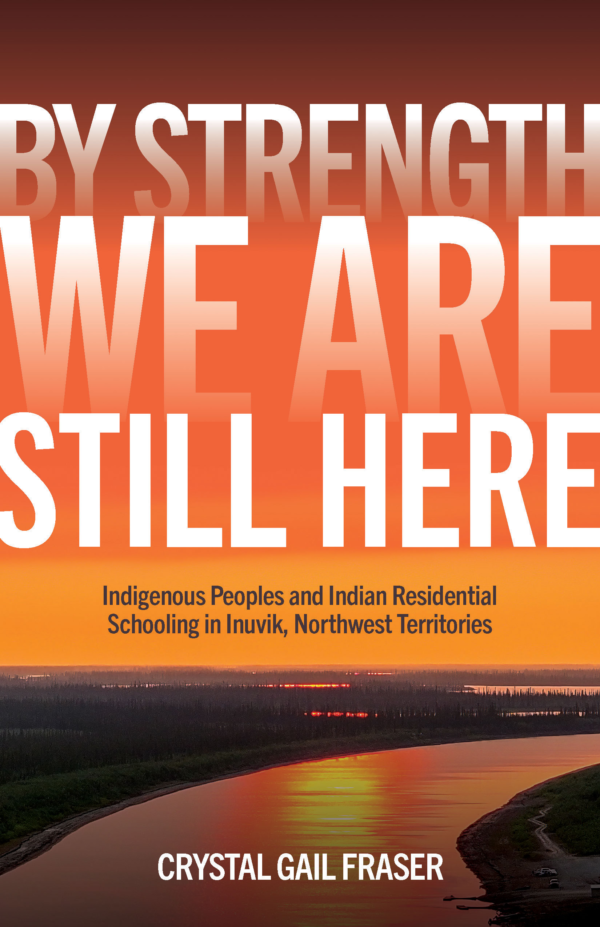
By Strength, We Are Still Here
Indigenous Peoples and Indian Residential Schooling in Inuvik, Northwest Territories
In this ground-breaking book, Crystal Gail Fraser draws on Gwitch’in concepts of individual and collective fortitude to illuminate student experiences in northern residential schools. Led by survivor testimony, Fraser shows how both students and their parents played a role in changing the system to protect and empower their communities.
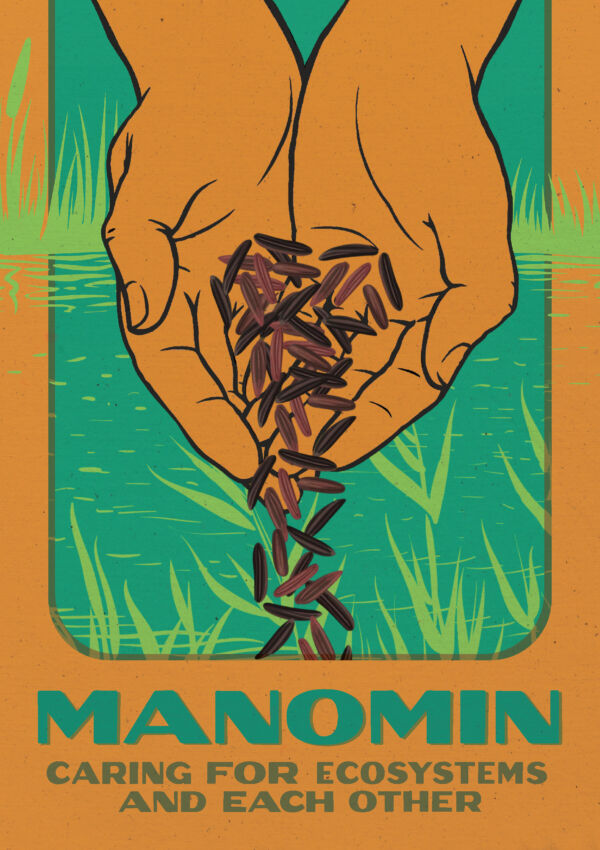
Manomin
Caring for Ecosystems and Each Other
Grounded in Indigenous methodologies, this collection offers a community-engaged analysis of the only cereal grain native to Turtle Island, weaving together the voices of scholars, chefs, harvesters, engineers, poets, and artists to share the plant’s many lessons about the living relationships between all forms of creation.

Enos Montour’s Brown Tom’s Schooldays tells the story of a young boy’s life at residential school. Drawn from Montour’s first-hand experiences at Mount Elgin Indian Residential School between 1910 and 1915, the book is an accomplished literary text and uncommon chronicle of federal Indian schooling in the early twentieth century.
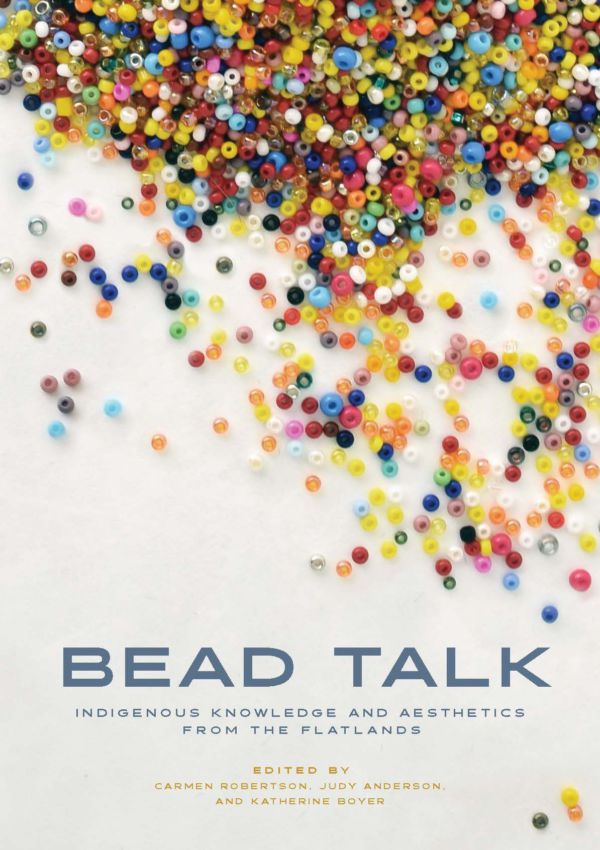
Bead Talk
Indigenous Knowledge and Aesthetics from the Flatlands
Beading fosters traditional methods of teaching and learning and enables intergenerational transmissions of pattern and skill. These conversations, interviews, essays, and full-colour reproductions of artwork from expert and emerging artists, academics, and curators from the prairies invite us all into the beading circle.
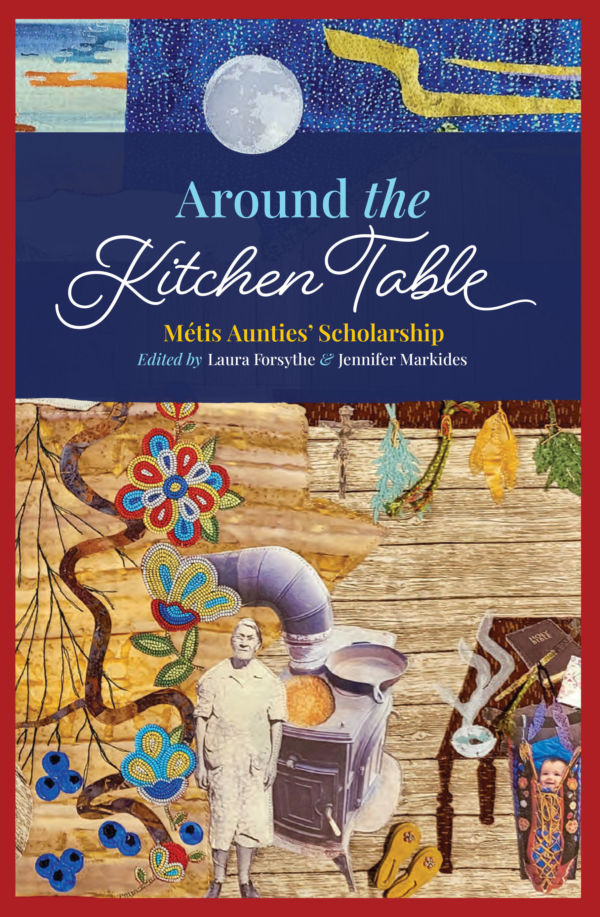
Around the Kitchen Table
Métis Aunties' Scholarship
Looking beyond the patriarchy to document and celebrate the scholarship of Métis women, Around the Kitchen Table brings together writing by new and established scholars, artists, storytellers, and community leaders that reflects the diversity of research created by Métis women as it is lived, conceptualized, and re-imagined.
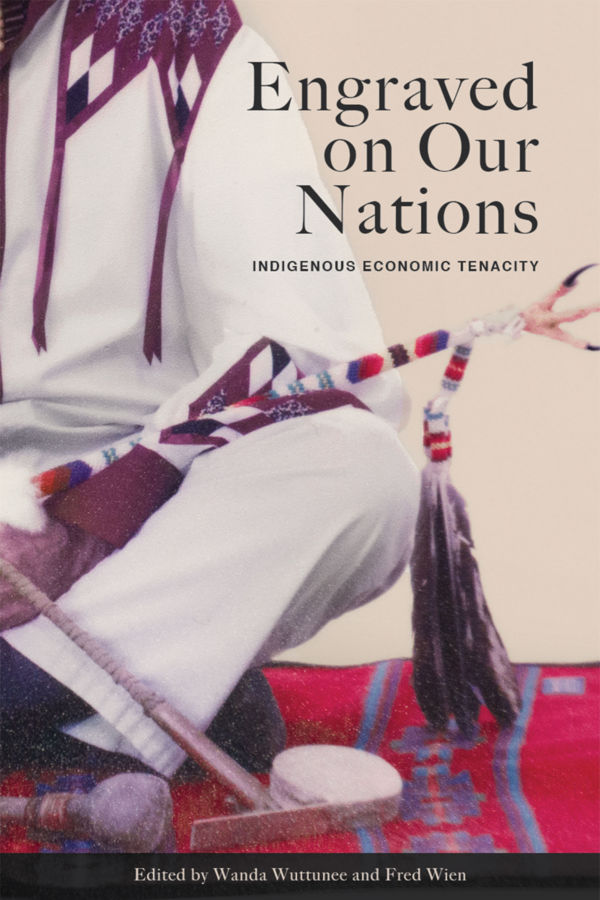
Engraved on Our Nations
Indigenous Economic Tenacity
This first-of-its-kind collection shares stories not only of entrepreneurial excellence and persistence but of savvy leadership, innovation, and reciprocity, providing hope to Indigenous business leaders, youth, and elected officials working on the front lines to improve economic conditions and achieve “a good life” for their communities.
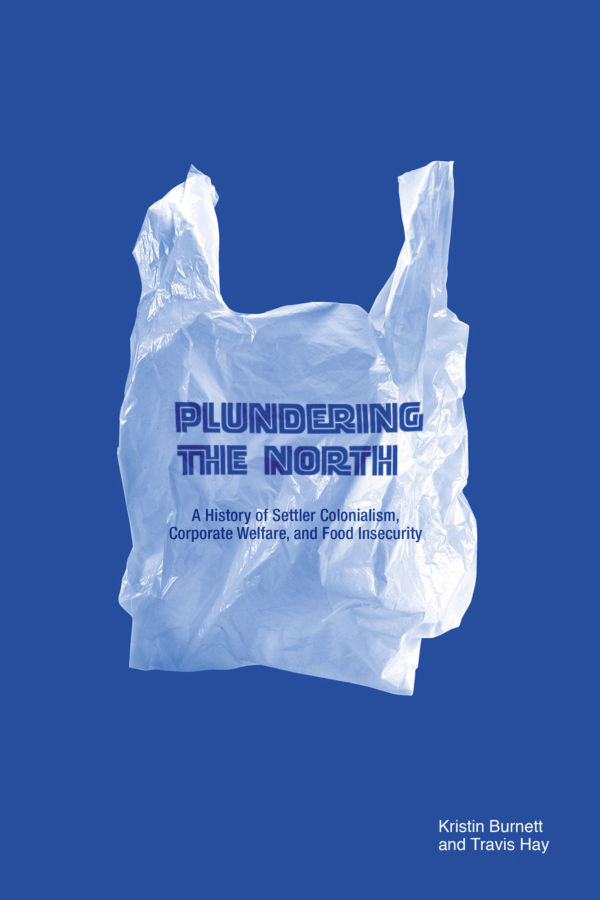
Plundering the North
A History of Settler Colonialism, Corporate Welfare, and Food Insecurity
Plundering the North provides fresh insight into Canada’s colonial project, laying bare the processes behind the chronic food insecurity experienced by northern Indigenous communities by charting the social, economic, and political changes that have taken place in northern Ontario since the 1950s.
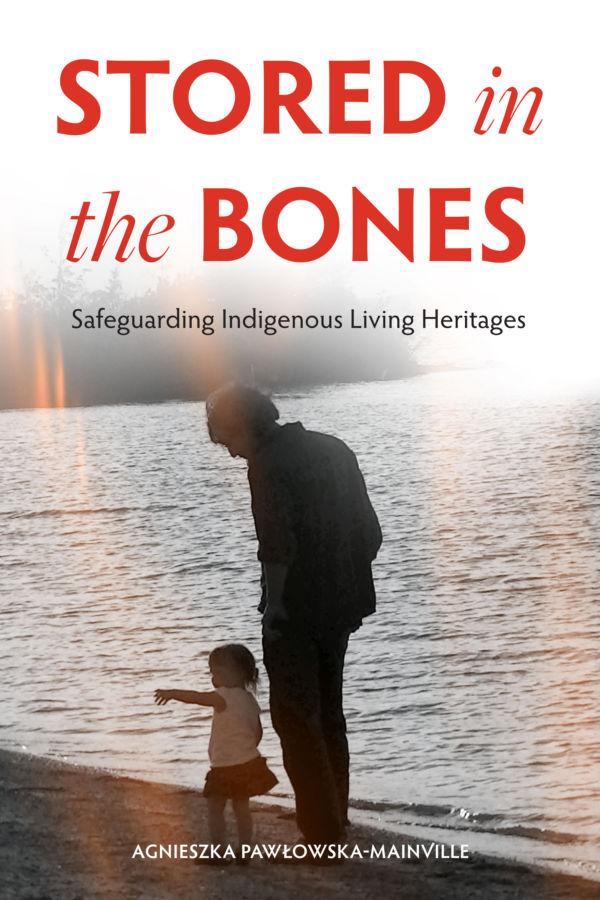
Stored in the Bones
Safeguarding Indigenous Living Heritages
Stored in the Bones enriches discussions of treaty rights, land claims, and environmental policy. Presenting an international framework that may be used to advance community interests in dealings with governments, the study offers a pathway for Indigenous peoples to document intangible cultural heritage.
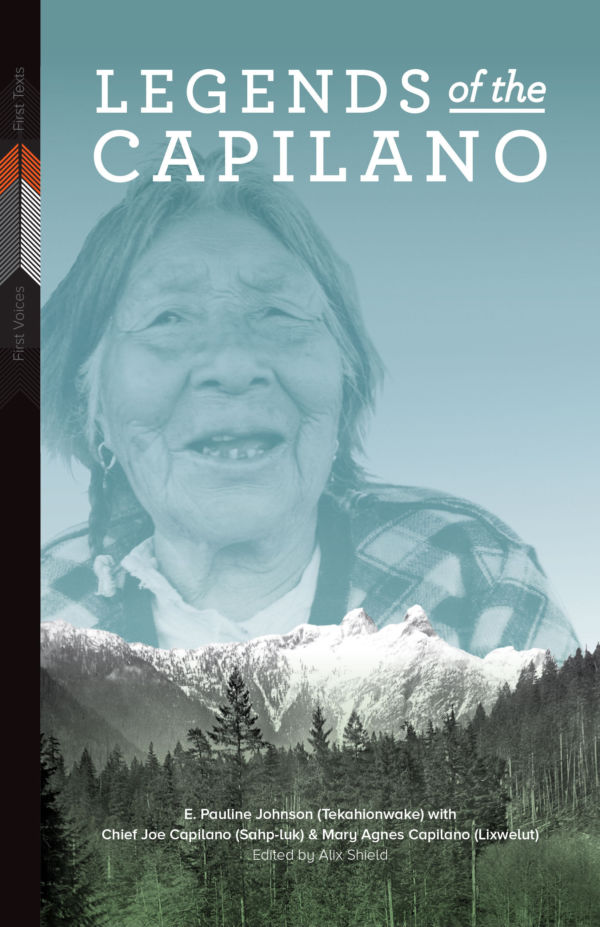
Legends of the Capilano updates E. Pauline Johnson’s 1911 classic Legends of Vancouver, restoring Johnson’s intended title for the first time, and celebrating the storytelling abilities of Johnson’s Skwxwú7mesh (Squamish) collaborators, Joe and Mary Capilano.
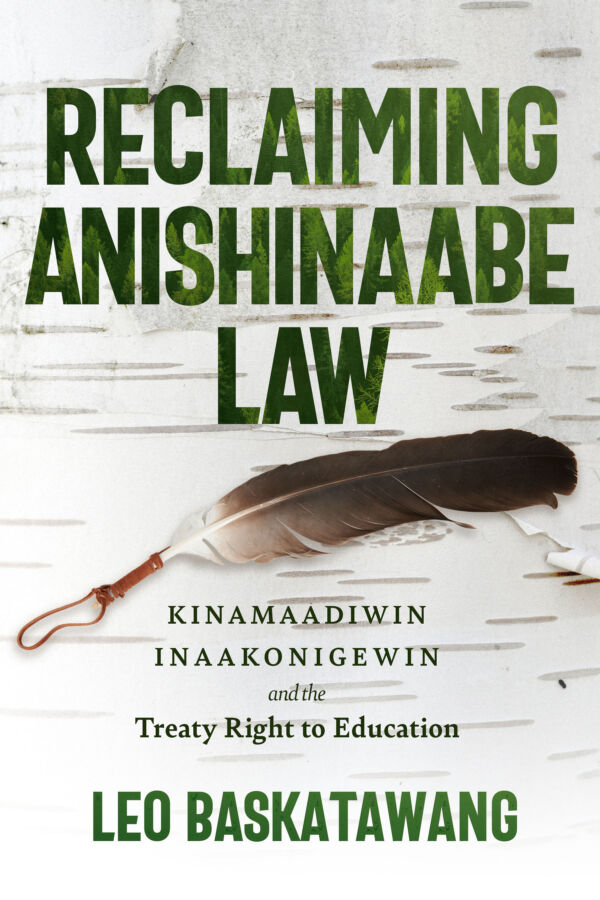
Reclaiming Anishinaabe Law
Kinamaadiwin Inaakonigewin and the Treaty Right to Education
Baskatawang envisions a hopeful future for Indigenous nations where their traditional laws are formally recognized and affirmed by the governments of Canada. Baskatawang thereby details the efforts being made in Treaty #3 territory to revitalize and codify the Anishinaabe education law, kinamaadiwin inaakonigewin.
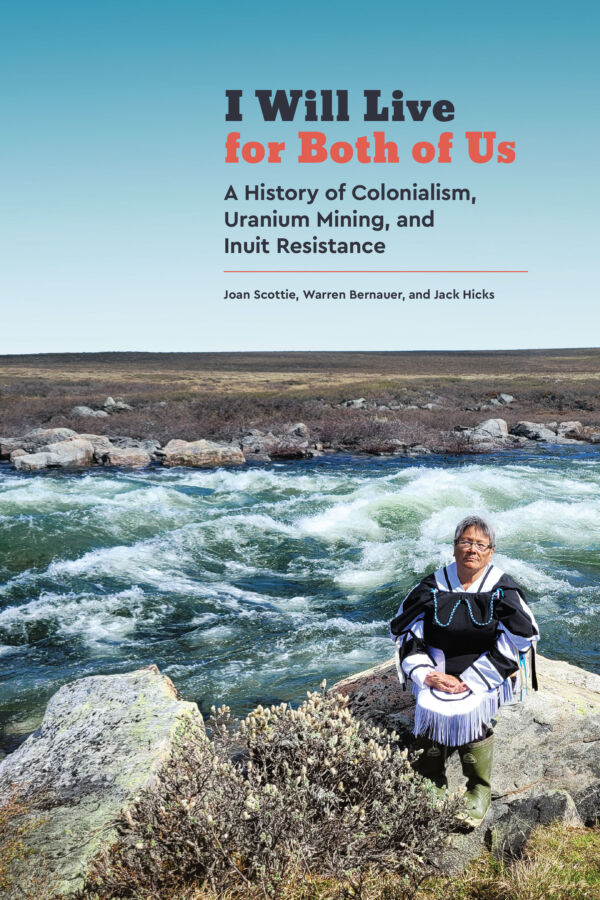
I Will Live for Both of Us
A History of Colonialism, Uranium Mining, and Inuit Resistance
Joan Scottie's I Will Live for Both of Us is a reflection on recent political and environmental history and a call for a future in which Inuit traditional laws and values are respected and upheld.
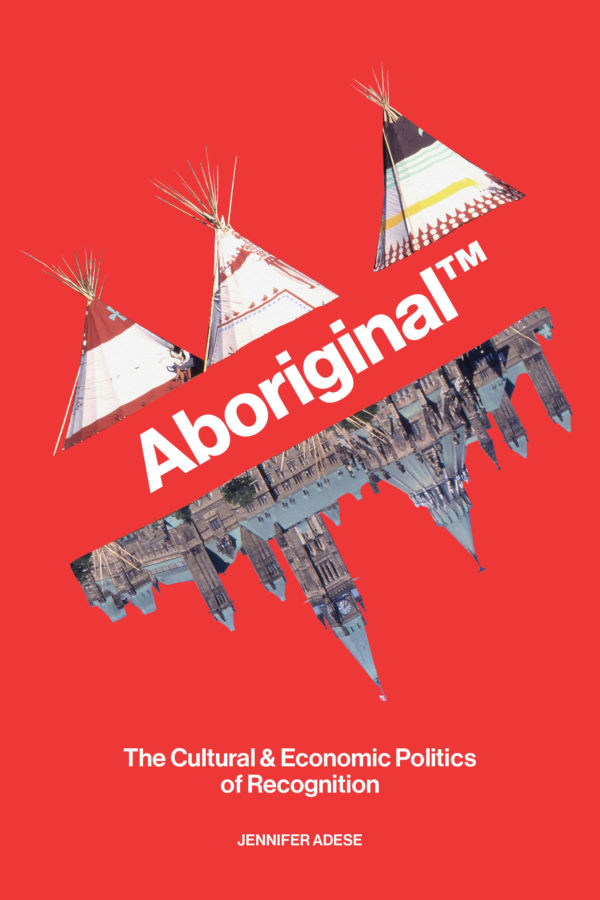
Aboriginal TM
The Cultural and Economic Politics of Recognition
Aboriginal™ explores the origins, meaning, and usage of the term “Aboriginal” and its displacement by the word “Indigenous.” More than legal vernacular, the term has had real-world consequences for the people it defined. Adese offers insight into Indigenous-Canada relations and Indigenous identity, authenticity, and agency.
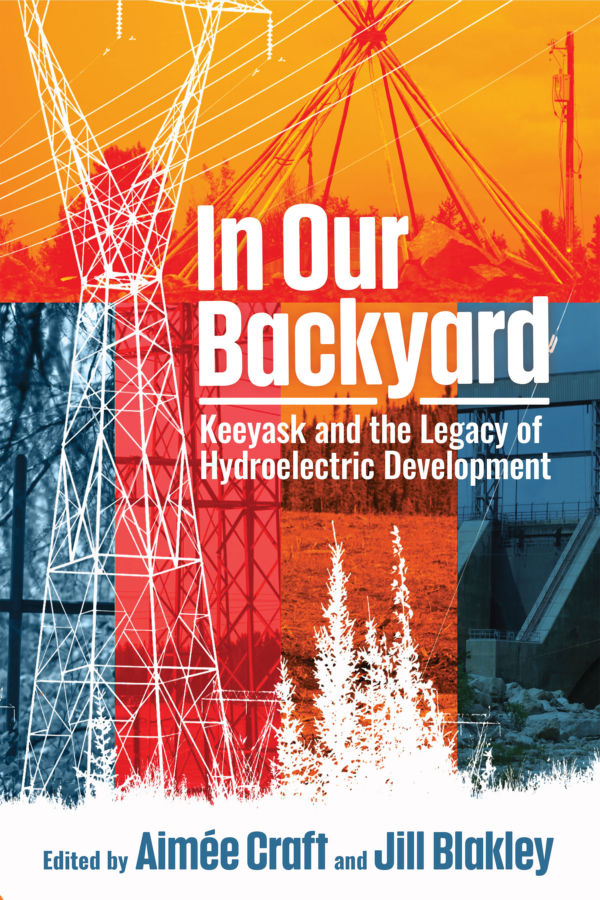
In Our Backyard
Keeyask and the Legacy of Hydroelectric Development
In Our Backyard tells the story of the Keeyask dam and accompanying development on the Nelson River from the perspective of Indigenous peoples, academics, scientists, and regulators.
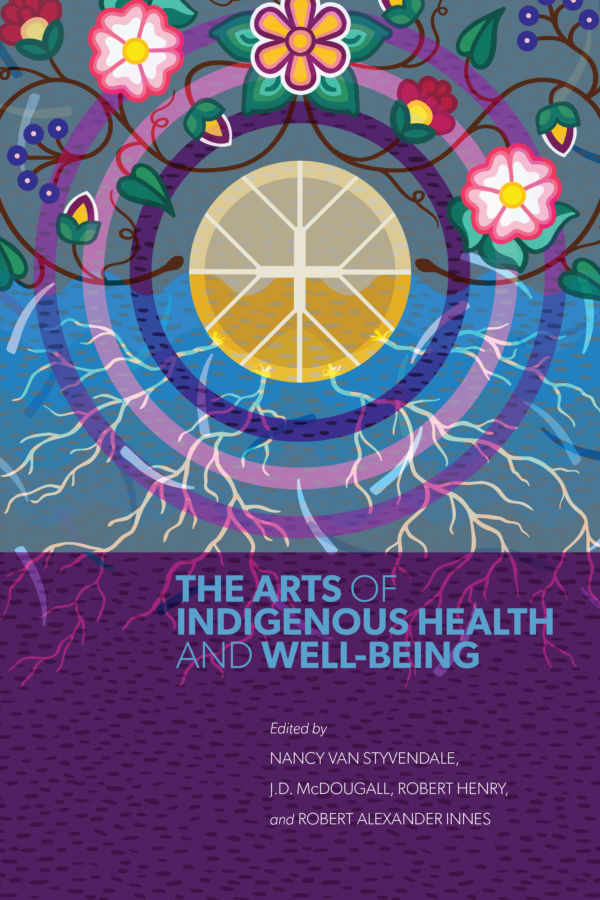
The Arts of Indigenous Health and Well-Being demonstrates the healing possibilities of Indigenous works of art, literature, film, and music from a diversity of Indigenous peoples and arts traditions.
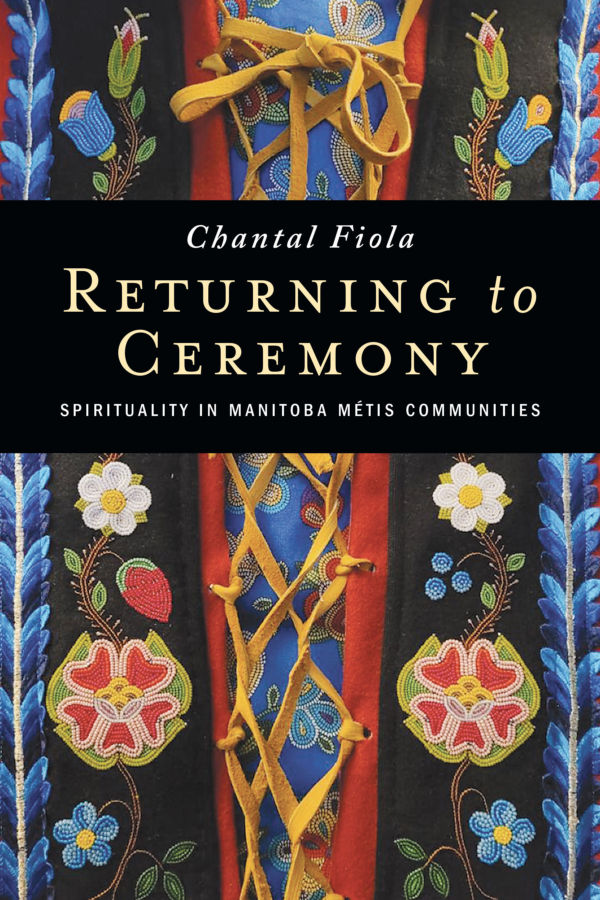
Returning to Ceremony
Spirituality in Manitoba Métis Communities
Returning to Ceremony is the follow-up to Chantal Fiola’s award-winning Rekindling the Sacred Fire and continues her ground-breaking examination of Métis spirituality. Among the Métis, Fiola asserts, spirituality exists on a continuum of Indigenous and Christian traditions, and Métis spirituality includes ceremonies.
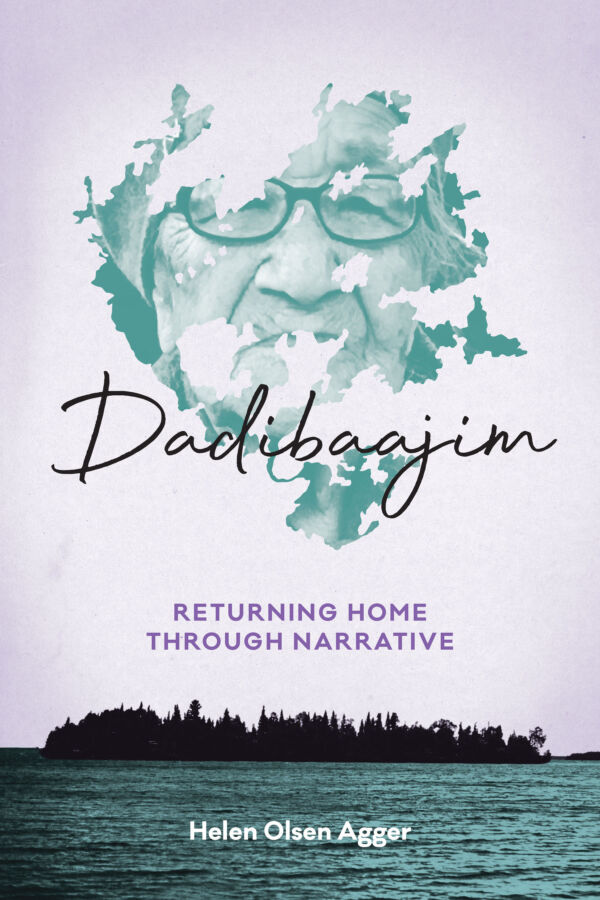
Dadibaajim
Returning Home through Narrative
Dadibaajim examines that history of encroaching settlement and dispossession as it reasserts the voices and presence of the Namegosibii Anishinaabeg too long ignored for the convenience of settler society.
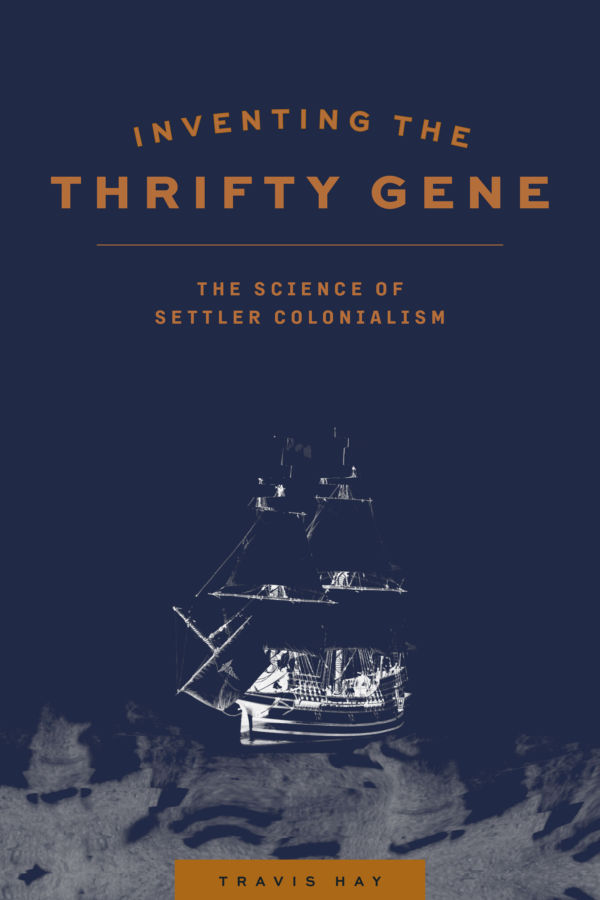
Inventing the Thrifty Gene
The Science of Settler Colonialism
Inventing the Thrifty Gene exposes the exploitative nature of settler science with Indigenous subjects, the flawed scientific theories stemming from faulty assumptions of Indigenous decline and disappearance, as well as the severe inequities in Canadian health care that persist even today.
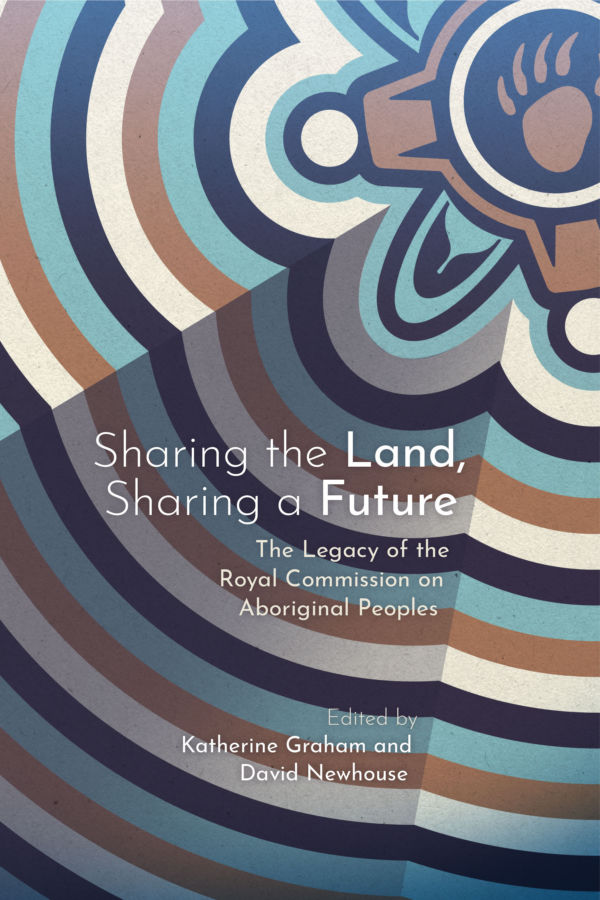
Sharing the Land, Sharing a Future
The Legacy of the Royal Commission on Aboriginal Peoples
Sharing the Land, Sharing a Future examines the foundational work of the Royal Commission on Aboriginal Peoples (RCAP) and the legacy of its 1996 report. It assesses the Commission’s influence on subsequent milestones in Indigenous-Canada relations and considers our prospects for a constructive future.

